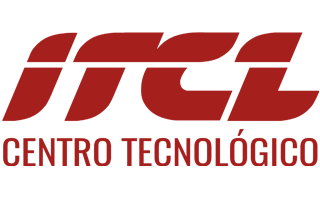How can the use of serious game have a positive impact in behavioural changes? How can they be used in the learning and teaching environments as a positive resource for young people, teachers, parents and carers? What innovative methodologies can be applied to develop serious games for this context? What stakeholders should be involved in this process?
 The expert seminar ‘Evidence-based development of serious games for the educational sector: challenges and perspectives’ will take place on 12 September 2018 in the Future Classroom Lab of European Schoolnet, in Brussels. This event is co-organised by the eConfidence project, which is coordinated by ITCL and has received funding from the European Union’s Horizon 2020 research and innovation programme under grant agreement No 732420.
The expert seminar ‘Evidence-based development of serious games for the educational sector: challenges and perspectives’ will take place on 12 September 2018 in the Future Classroom Lab of European Schoolnet, in Brussels. This event is co-organised by the eConfidence project, which is coordinated by ITCL and has received funding from the European Union’s Horizon 2020 research and innovation programme under grant agreement No 732420.
Serious games – that is, games with an educational purpose – have become popular in schools and have been shown to support knowledge acquisition as well as bring about behavioural, perceptual and cognitive change. They can be an important learning method provided they have a sound underlying pedagogical design.
The seminar addresses researchers in the field of social sciences and games for education, games developers, educational professionals (teachers, head of schools, didactic coordinators, school counsellors etc.) and policy makers with an interest and experience in implementing games in the school context.
During the event, European Schoolnet, eConfidence partners and Scientix experts will engage with the participants around the lessons learnt from their activities concerning games at school, looking beyond what we already know about their use in education to what kind of impact we expect them to have and how to move from vision to evidence.
Seminar objective
During the workshop, experts and participants will:
- identify some of the current challenges for initiatives aiming to develop games for the schools context and to involve social science researchers, game developers and schools in this process;
- look together at how serious games have a positive impact in behavioural changes, how they can be used in learning and teaching environments as a positive resource for young people, teachers, parents and carers, and what innovative methodologies can be applied to develop games and serious games for the educational context;
- look into opportunities, sustainability actions and recommendation for future activities.
Participants will have the opportunity to contribute actively presenting their experience, projects and initiatives around the key topics and questions.
If you are interested in participating in this event, please, contact us at info@econfidence.eu with a short note on your organisation, role and potential contribution.
For more information, please, visit www.econfidence.eu/final-seminar



